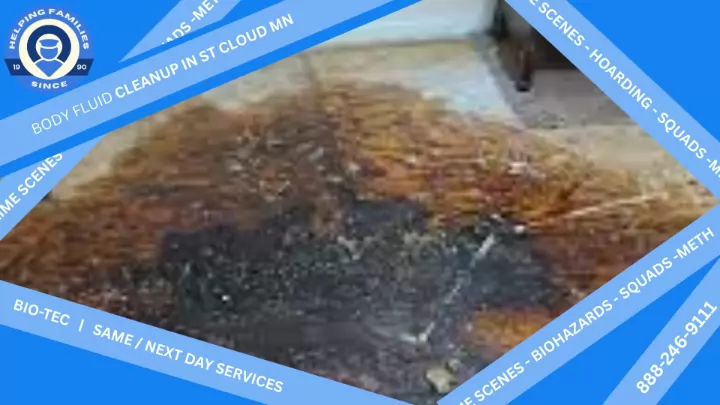AVAILABILE NOW!
Mark Kropidlowski
Bio-Tec Emergency Services, LLC
August 26, 2025 - 12:05 PM
Why Does Biohazard Restoration for Rodent Droppings: Professional Help, Matter?
Introduction
Rodent infestations present serious challenges for families and property owners. Beyond the visible nuisance, Rodent droppings pose severe health risks, financial burdens, and safety concerns. Addressing these Biohazards requires specialized expertise and professional intervention. This blog explores the critical role of Biohazard restoration services in managing Rodent droppings and highlights their impact on health, finances, and safety.
Health Risks of Rodent Droppings
Rodent droppings are a significant health hazard, harboring pathogens that can lead to severe illnesses. Some common health risks include:
- Hantavirus: A potentially fatal respiratory disease transmitted through Rodent droppings and urine.
- Salmonella: A bacterial infection causing gastrointestinal issues, often spread through contaminated surfaces.
- Leptospirosis: A bacterial infection that can lead to kidney damage, meningitis, and liver failure.
- Asthma and allergies: Rodent droppings can exacerbate respiratory conditions, especially in children and the elderly.
Proper cleanup and disinfection are essential to eliminate these risks and protect the health of families.
Financial Effects of Rodent Droppings
Ignoring Rodent droppings can result in substantial financial consequences, such as:
- Property damage: Rodent infestations can damage insulation, wiring, and structural elements, leading to costly repairs.
- Decreased property value: Contamination and visible signs of infestation can lower the market value of a property.
- Health-related expenses: Exposure to Rodent droppings can lead to medical bills for treating illnesses and allergies.
- Pest control costs: Persistent infestations may require extensive and repeated pest control measures.
Professional Biohazard cleanup services mitigate these financial impacts by ensuring thorough and lasting restoration.
Safety Concerns and Hazards
Rodent droppings not only affect health but also create safety hazards, including:
- Fire risks: Rodents chewing on electrical wiring can increase the risk of fires.
- Environmental contamination: Improper disposal of droppings can pollute water sources and soil.
- Structural instability: Prolonged infestations may weaken building materials, compromising safety.
- Inadequate DIY cleanup: Attempting to clean Rodent droppings without proper training can spread contamination and increase exposure risks.
Engaging professional services ensures the safe removal and disposal of Biohazards, protecting both families and the environment.
Why Professional Help Is Essential
Managing Rodent droppings is a complex task that requires specialized knowledge and equipment. Professional Biohazard restoration services offer:
- Expert assessment: Professionals identify the extent of contamination and affected areas.
- Advanced cleaning solutions: Industry-grade disinfectants and equipment ensure thorough Decontamination.
- Compliance with regulations: Professionals adhere to health and safety standards, reducing legal liabilities.
- Preventative measures: Experts provide recommendations to prevent future infestations and contamination.
Choosing professional help guarantees a safe and effective resolution to Rodent contamination issues.
Expert Techniques for Biohazard Cleanup
Professional Biohazard cleanup teams employ advanced techniques to restore safety and hygiene, including:
- Protective equipment: Use of gloves, masks, and suits to prevent exposure to harmful contaminants.
- Specialized tools: HEPA vacuums, steam cleaners, and UV light technology for deep cleaning.
- Safe disposal: Proper handling and disposal of contaminated materials to prevent environmental risks.
- Post-cleaning inspections: Verification of cleanliness and safety to ensure compliance and peace of mind.
These techniques ensure that affected areas are thoroughly restored and safe for occupancy.
Conclusion
Rodent droppings pose serious threats to health, finances, and safety, making professional Biohazard restoration services indispensable. These experts provide the tools, knowledge, and Support needed to address contamination effectively and restore peace of mind to families and property owners. If you’re dealing with a Rodent infestation or contamination, don’t hesitate to contact certified professionals for reliable and compassionate assistance.
CALL US TODAY AT 888-246-9111
For Same/Next Day Expert Biohazard Cleanup Services. Available 24/7 to ensure your safety and compliance.
We can typically be on site within 1 hour.
HOME > post > methlab cleanup > sumac > ga


